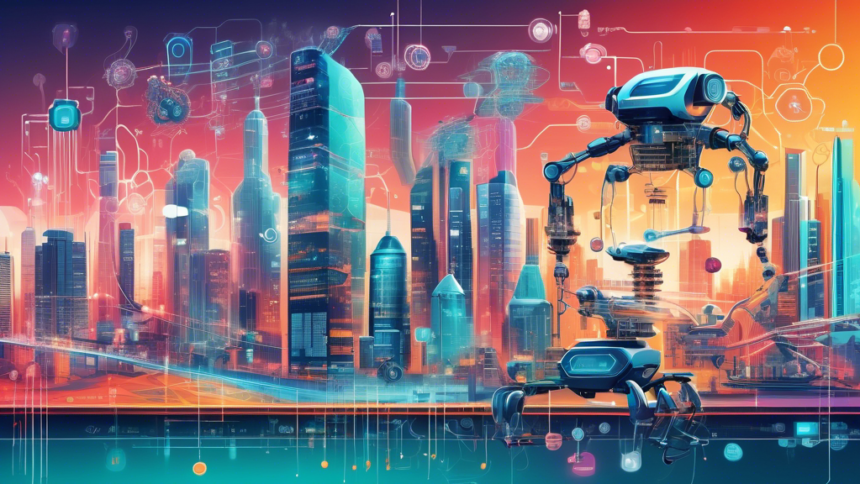Introduction
Artificial Intelligence (AI) stands at the forefront of technological evolution, fundamentally altering how we work, communicate, and interact with our surroundings. From its inception to its current state, AI has evolved remarkably, showcasing a transformative impact across various sectors. This narrative aims to unveil the world of AI, tracing its evolution and dissecting its profound impact on society.
The Evolution of Artificial Intelligence
The Conceptual Beginnings
The foundation of AI can be traced back to the mid-20th century, with pivotal figures like Alan Turing and John McCarthy. Turing, with his Turing Test, proposed a scenario to evaluate a machine’s ability to exhibit intelligent behavior indistinguishable from that of a human. McCarthy, often recognized as the father of AI, coined the term Artificial Intelligence in 1956 and organized the Dartmouth Conference, which significantly propelled the field forward.
The Developmental Years
The ensuing decades saw a rollercoaster of progress and setbacks. The initial excitement transitioned into periods of AI winters, where funding and interest dwindled due to unmet expectations. However, these winters were interspersed with springs of breakthroughs. In the 1990s and 2000s, advancements in computational power, data availability, and machine learning algorithms rejuvenated the field, setting the stage for the modern era of AI.
The Age of Innovation
Today, AI’s capabilities have expanded exponentially, powered by leaps in technology and an explosion in data. Neural networks, deep learning, and natural language processing are at the heart of this new age, enabling machines to perform complex tasks, from voice recognition to predicting consumer behavior. AI’s integration into everyday technology has made it an invisible yet pervasive force in our lives.
The Impact of Artificial Intelligence
Industry and Economy
AI’s influence is vast and varied, reshaping industries from healthcare to finance. In healthcare, AI enables faster, more accurate diagnoses and personalized treatment plans. In finance, algorithms predict market trends, manage investments, and detect fraud. The automation of repetitive tasks has also led to increased efficiency, albeit with debates around job displacement and the future of work.
Society and Ethics
As AI becomes more embedded in social interactions and decision-making, ethical considerations take center stage. Issues such as privacy, data security, and algorithmic bias challenge the global community to establish norms and regulations ensuring AI’s responsible use. Furthermore, AI’s role in shaping public opinion and behavior through social media algorithms underscores the importance of transparency and accountability in its deployment.
Future Outlook
The trajectory of AI’s evolution suggests a future where AI and human capabilities are increasingly intertwined. Ongoing research in areas such as quantum computing and AI ethics promises to unlock even greater potential while addressing existing limitations and concerns. The objective is not just to enhance AI’s intelligence and efficiency but also to ensure it serves the greater good, enhancing human wellbeing and sustainability.
Conclusion
In sum, Artificial Intelligence has journeyed from theoretical musings to an all-encompassing force that touches every aspect of our lives. Its evolution witnesses the convergence of human creativity and technological prowess, marking a new era in human history. As AI continues to evolve, its impact will only deepen, making its understanding and ethical governance ever more critical for humanity’s collective future.






